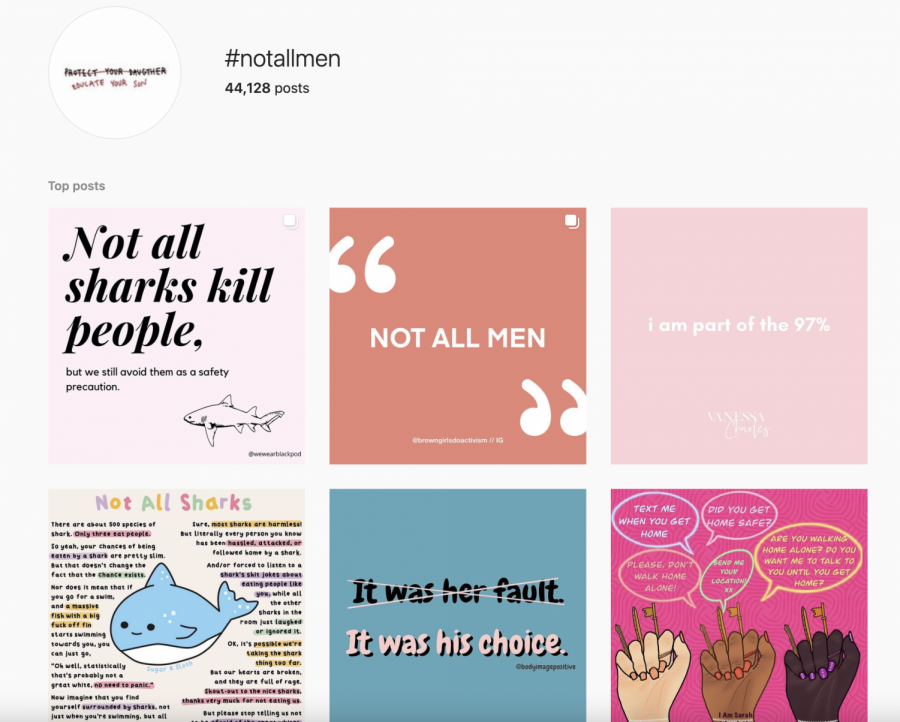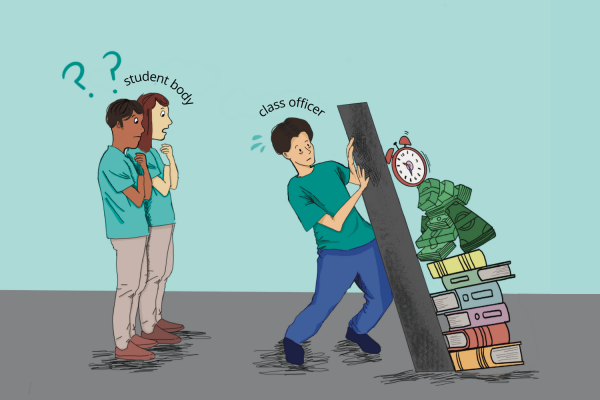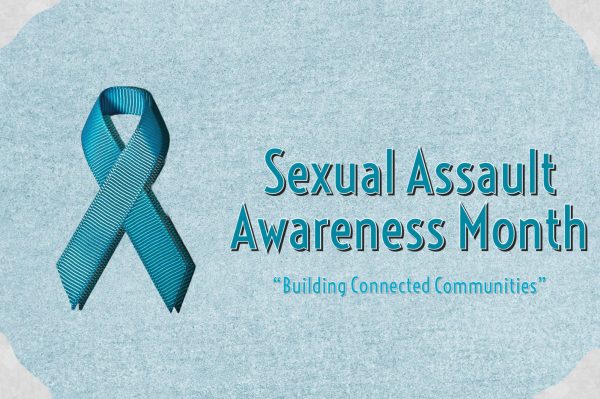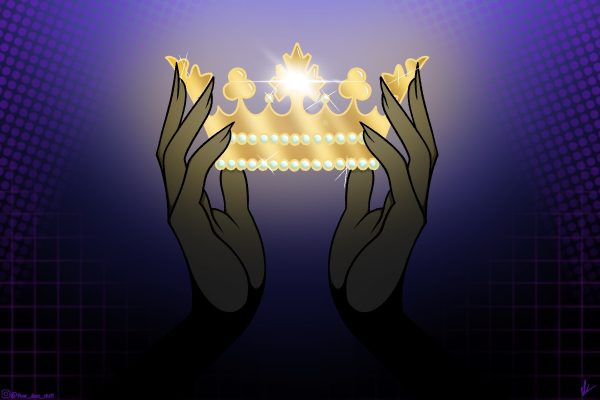The dangers of the “#notallmen” movement
Breaking down the responsibility every man has to respond to the threat and reality of sexual harassment and assault all women face
Iman Malik
%23notallmen is a movement raised in opposition to women who share their experiences of sexual assault and harassment. Members of this movement believe it is unfair to accuse every single man of being a rapist.
March 25, 2021
It is dark and cold and almost 11 p.m. when I walk out of my committee room after the first session of a three-day Model UN conference. I sign out with a club officer and begin making my way to where my ride is, not too far away, when I hear yelling. I see a group of college-aged men walking in my direction; maybe they had just left a party or a football game. I immediately open my backpack, grab my sweatshirt and throw it on. I check my wrist for a hair tie and curse when I can’t find it. I bunch up my hair, shove it into my jacket and lift up my hood. I pull my lanyard out of my backpack and wrap it around my wrist so the ridged edge of my house key faces outward between my fingers. My other hand is shoved inside my pocket, holding my phone. When I look down to avoid eye contact, I panic; my skirt suddenly looks too short, my stockings seem too transparent and the sound of my heels on the pavement echo too loudly. I take a deep breath and keep walking — they probably won’t notice me, right?
200 steps left.
150.
100.
Then I hear a whistle, followed by: “Where are you going?” Shit.
I freeze for a second, then keep walking. Just get to the car.
I hear it again, this time more aggressively: “Where are you going?” How fast can I run in heels?
I keep walking, my knuckles whitening as I grip my key, a now feeble defense against a group of tall, irritated and probably intoxicated men.
Their calls cease after a couple of excruciating seconds that feel more like hours and I walk the remaining distance to my friends, get into the car and ride home.
Now, three years later, finding out that 97% of women have been through some form of harassment is what brings that moment back to the surface of my memory. It’s a twisted solidarity — one that lets me reflect on why so many other women and I do what we do after just seeing men walk towards us at night.
Why did I wear a sweatshirt? To disguise the shape of my body.
Why did I hide my hair? To be as inconspicuous as possible.
Why did I take my keys out of my backpack? To have something, anything, to protect me.
Why did I have my phone in my hand? To text or call my friends as fast as possible.
Why did I take so many precautions? Because I was afraid of getting raped.
—
I am slowly beginning to visualize what 97% looks like in the context of my own life; my friends and classmates have taken to Instagram to share their stories of being sexually harassed and assaulted. There is a lot of support, as there should be. But I am alarmed by the amount of resistance demonstrated by men who claim their biggest fears are being “falsely accused of rape.”
Forgive me for spitting facts, but being falsely accused of rape (which occurs at far lower rates than sexual violence, I might add) does not even begin to compare with actually being raped.
Instead of working to become better allies or educating themselves about what women deal with on a daily basis, a significant percentage of men have united under the movement “#notallmen,” claiming that when women make accusations of assault, it perpetuates the idea that every single man is a rapist. 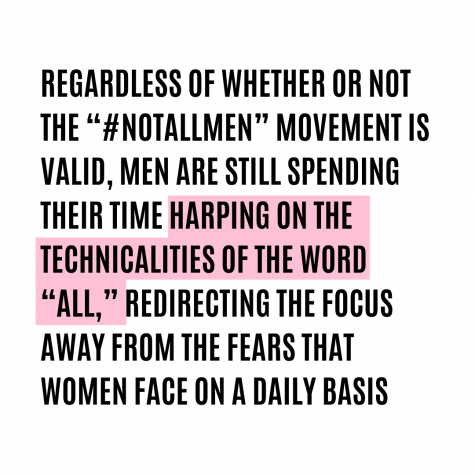
Regardless of whether or not the “#notallmen” movement is valid, men are still spending their time harping on the technicalities of the word “all,” redirecting the focus away from the fears that women face on a daily basis to the pathetic, so-called worries of men who are realizing their misogyny is becoming more difficult to bury.
To men: yes, I will admit, as will every other woman, that not all three billion, eight hundred and ninety-two million, sixteen thousand of you are rapists. But the fact you even need to hear that is pathetic — your job is to listen to your female friends, support them and call out your male peers on their misogyny. Your job is not to compete with women who have been harassed for the title of who feels more ostracized. There is no comparison.
To men: helping women doesn’t mean performative reposts of harassment stories, or worse, posts titled, “If I am friends with your abuser, DM me and that will change.” Do you really want me to DM you about the same people you rate women’s appearances on spreadsheets with, deny female students’ intellect with and laugh about consent at sexual assault webinars with? Will something really change, or do you just want a pat on the back for doing the bare minimum? Ask yourself if you are able to handle those accusations and hold the accused individuals accountable the way you claim you will. Will you really cut them out of your life?
View this post on Instagram
To men: even if you consider yourself a proud member of the “#notallmen” hashtag, you need to understand that all men — every single one — is responsible for using their privilege to make the women around them feel safe. Your automatic reaction should be to believe a woman’s accusations. Perform some basic cost-benefit analysis: supporting a liar is better than supporting a sexual abuser. It shouldn’t have taken the 97% statistic to wake you up to this problem; the words of one woman are enough to call harassment and assault a problem.
—
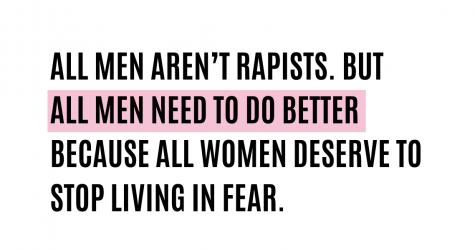
If I tell my story to others, people will pepper me with well-intentioned, but severely flawed advice, like “don’t walk alone next time” or “make sure you bring a friend and turn on location sharing.” These statements may have helped me during that one nighttime walk, but why have we normalized the fact that women fear walking alone at night, that it is their responsibility to think of a million different hypotheticals and then develop precautions? At its core, these suggestions are emblematic of the sickening, primitive “boys will be boys” attitude that lies at the root of the 97% statistic. Worse, men will claim women should be flattered if they are sexually harassed because they were “attractive enough” to be whistled at.
We are not objects for you to gaze at, harass and exploit.
We need to change our advice so it is directed towards men. We need to say to them: “don’t catcall women,” “don’t objectify women’s bodies” and “treat women with respect.” Let’s change “boys will be boys” to “boys need to be better.”
It is time we start raising boys not to be perpetrators instead of teaching girls not to be victims. Why does it seem like our goal is to protect our daughters? Our goal should be to educate our sons.
All men aren’t rapists. But all men need to do better because all women deserve to stop living in fear.
This story was originally published on El Estoque on March 23, 2021.



























![IN THE SPOTLIGHT: Junior Zalie Mann performs “I Love to Cry at Weddings,” an ensemble piece from the fall musical Sweet Charity, to prospective students during the Fine Arts Showcase on Wednesday, Nov. 8. The showcase is a compilation of performances and demonstrations from each fine arts strand offered at McCallum. This show is put on so that prospective students can see if they are interested in joining an academy or major.
Sweet Charity originally ran the weekends of Sept. 28 and Oct. 8, but made a comeback for the Fine Arts Showcase.
“[Being at the front in the spotlight] is my favorite part of the whole dance, so I was super happy to be on stage performing and smiling at the audience,” Mann said.
Mann performed in both the musical theatre performance and dance excerpt “Ethereal,” a contemporary piece choreographed by the new dance director Terrance Carson, in the showcase. With also being a dance ambassador, Mann got to talk about what MAC dance is, her experience and answer any questions the aspiring arts majors and their parents may have.
Caption by Maya Tackett.](https://bestofsno.com/wp-content/uploads/2024/02/53321803427_47cd17fe70_o-1-1200x800.jpg)
![SPREADING THE JOY: Sophomore Chim Becker poses with sophomores Cozbi Sims and Lou Davidson while manning a table at the Hispanic Heritage treat day during lunch of Sept 28. Becker is a part of the students of color alliance, who put together the activity to raise money for their club.
“It [the stand] was really fun because McCallum has a lot of latino kids,” Becker said. “And I think it was nice that I could share the stuff that I usually just have at home with people who have never tried it before.”
Becker recognizes the importance of celebrating Hispanic heritage at Mac.
“I think its important to celebrate,” Becker said. “Because our culture is awesome and super cool, and everybody should be able to learn about other cultures of the world.”
Caption by JoJo Barnard.](https://bestofsno.com/wp-content/uploads/2024/01/53221601352_4127a81c41_o-1200x675.jpg)




